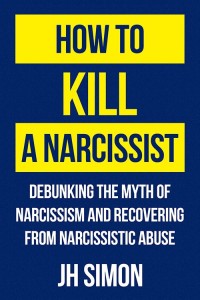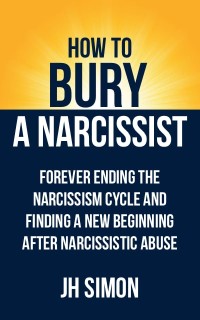Table Of Contents
- The Empath And The Narcissist: The Sensitive Creator Meets The Selfish Taker
- The Tragedy Of The Narcissist
- The Misunderstood Empath
- How An Empath Attracts A Narcissist
- When The Drugs Wear Off
- Fall Empath, Fall: Freedom From The Narcissist
- Self-Remembrance
- Permission To Be, And Create
- Firm, Spacious Structures
Some people seem to invite narcissists into their lives. They don’t mean to; it just happens. They might be recreating family dynamics from being raised by a narcissistic parent. That could well be true. The other reason, however, might be less nurture and more nature; they could be an empath.
Such a relationship between an empath and narcissist seems to fit like a glove, and for good reason.
The Empath And The Narcissist: The Sensitive Creator Meets The Selfish Taker
Empaths, as they are referred to:
- Are creative.
- Experience their emotions quickly and with high intensity before burning out. They often feel fatigued and have a pressing need for solitude in order to recharge.
- Are attuned to the emotions of others, even going as far as to take on these emotions, which can also drain their energy if they are not careful.
- Are good listeners, and can sacrifice their attention for long periods.
- Have more difficulty than others keeping up with daily life, and so are prone to seeking out a higher power for guidance and support.
- Can more easily be influenced than others.
The emotional world of an empath is vibrant. They are artists and dreamers. They inspire others with their energy and lust for life.
They crave love and connection more than other people. Due to this deep need for emotional fulfilment, their boundaries are usually weak. That is, their need for connection outweighs their need to protect themselves. They thrive on togetherness, and suffer when isolated.
The empath’s emotional buttons are also easier to push than non-empaths. This makes them excellent fodder for the narcissist, who is constantly on the lookout for easy access to narcissistic supply.
The Tragedy Of The Narcissist
Unlike the dreaming empath, the narcissist is a schemer. While the empath seeks out connection, beauty and love, the narcissist seeks out control, superiority and supply.
Being seen and accepted by those we love is life-affirming, while not being seen by them is terribly painful and shaming. The narcissist is a product of a system which did not see them for who they were. Eventually, the pain of being denied their humanity became too much. The narcissist disowned their True Self — along with its emotions. Instead, they created a fiction in their mind which restored their self-esteem. That is, they became a narcissist.
To achieve this Faustian bargain, the narcissist sold their soul, and began to feel dead inside. Only attention and energy from outside of themselves could make them feel alive again. This explains the narcissist’s addiction to the coveted narcissistic supply.
When people set boundaries with the narcissist, it forces the narcissist to reckon with their internal emptiness and shame at being rejected. When people give their love, positive regard and attention to the narcissist, however, the narcissist comes alive. Eventually, they zero in on the people who freely give of themselves with minimal fuss; empaths.
The Misunderstood Empath
Above all, empaths require deep connection. They have a constant craving to experience the beauty which life offers, and to resonate with other human beings. Unlike narcissists, they have not given up on being seen for who they truly are.
Not every environment can support the needs of empaths. Emotionally, they function at a higher frequency than others. This demanding way of relating often leads to misunderstandings and, as a consequence, rejection.
Empaths, due to their rich emotional world, are already hypersensitive to interruptions in connection. In many families, especially conservative, traditional or abusive ones, the empath’s need to be creative and deeply understood can be neglected. Worse, the empath can be shamed for their ‘softness’. These unmet needs topped by constant shaming can leave the empath with low self-esteem and an overwhelming craving for love, and not be aware of why.
Then the narcissist comes along, gifting the empath their undivided attention. The narcissist has no problem with the empath’s intensity. In fact, they welcome it. The more the better. Upon being seen and accepted like this, the empath feels like they have found their soulmate.
How An Empath Attracts A Narcissist
It takes consistent, attuned resonance from another person to satisfy the empath’s hunger and maintain their emotional equilibrium. They can’t just shut it off.
The narcissist will smell this like a shark smells blood and swoop in. The empath’s inner beauty and weak boundaries make them a gold mine of narcissistic supply. Narcissists know how to push emotional buttons, and they know that empaths cannot help but respond.
Also, the narcissist’s charm can be intoxicating and irresistible to the empath. Most people are lukewarm when they don’t know someone, whereas narcissists can be very attentive right away. To make the empath fall for them, the narcissist will mirror and affirm the empath’s emotional side.
The empath will think they have hit the jackpot, finally finding someone who can handle their intensity. It’s like a gravitational force which acts against their will and clouds their judgement. An empath and narcissist together create a perfect storm.
When The Drugs Wear Off
Nobody ever really has all the answers, so the average person will not be able to offer the empath the depth and security they desire. In comes the narcissist, however, with their strong sense of (false) self and confidence.
As the empath and narcissist relationship grows, the empath slowly realises how oppressive and manipulative the narcissist is. Meanwhile, the relationship deteriorates due to the narcissist’s idealise, devalue and discard cycle. At first, the narcissist is awed by the empath’s vigour and lust for life. In contrast to the narcissist’s emotional deadness, the empath is a divine supernova.
However, all good drugs eventually wear off.
Just like with all of the narcissist’s relationships, the inevitable shift comes as the narcissist is either disappointed or becomes bored with the empath.
The empath, having had a glimpse of heaven with the narcissist, has a hard time letting go of the memory of being idealised. Losing their structure, their unconditional lover, their soulmate, is too painful to accept.
Panic sets in, and the Empath scrambles to regain the narcissist’s unconditional positive regard, not realising that the doorway to freedom and depth is and always has been within reach.
Fall Empath, Fall: Freedom From The Narcissist
It now becomes clear why empaths repeatedly fall for narcissists. This is not the end of the story, however. There is another way. The key is not just for the empath to leave the narcissist behind.
The empath must take the leap of faith.
This requires courage, since doing so will induce great fear. When the empath finally agrees to fall, they begin their spiritual journey. They then come to see their sensitivity not as a curse, but as a powerful force.
The missing elements for the empath were always the witness and the container. An empath wants to be truly seen for who they are, and securely held as they express their fullness. The mistake they made was seeking this outside of themselves via the narcissist.
Spiritual teachings espouse that inside all of us is an inner witness, an observer channelled via our consciousness — a Higher Self capable of seeing, validating and containing all. The empath’s spiritual journey is to seek out this aspect of themselves and develop it to its fullest.
This can be extremely difficult for someone accustomed to constant internal chaos. However, through crisis comes great opportunity, and every empath must come to learn how powerful they truly are. For that, they need to practice a special meditation.
Self-Remembrance
‘Self-remembrance’ is the process of sitting, for a certain period, purely with the aim of allowing a time and space for the authentic Self to emerge.
In effect, you are inviting the witness to awaken, while growing the capacity to contain what it sees. It is a waiting game, and nothing else — and the perfect exercise for an empath looking to grow their personal power.
The point of self-remembrance is to sit with ‘you’ as long as possible. That’s it. You sit there with no expectation of something happening (Although paradoxically, something does eventually happen).
The instructions are as follows:
- Find a quiet room where you will not be distracted.
- Sit cross-legged with your back and neck upright. It helps to have a meditation pillow or towel to sit on, since elevating your torso allows you to maintain good posture, and makes the meditation less painful. The important thing is to establish as much comfort as possible while maintaining a seated, upright position.
- Set a timer. The ideal period is 20 minutes. You may need to begin with a much shorter duration and work your way up.
- Rest your hands on each lap.
- Keep your eyes open throughout the sitting. Find something basic to focus on, such as a mandala, a spot on the floor, or an object without printing on it. This will be your reference point throughout the meditation to allow you to gently focus without scattering. If you feel a need to close your eyes, do so, but open them again when you’re ready.
- Try to stay relaxed yet focused throughout.
The Obstacles To Self-Remembrance
During the meditation, you will hit some difficulties. Sitting perfectly still and silent is a mode the mind does not like very much, and it will rebel. Be ready to face incessant thoughts, discomfort, doubts and impatience. If you stick with it, however, you will be rewarded.
It is a balancing act, where too much focus brings too much ego, which blocks the path to the authentic Self. Too little focus causes you to become unconscious, which means the Self will overrun you.
Self-remembrance has one aim: To open a space for your True Self to emerge and for you to meet it. However, you will approach the exercise without an aim. The minute you begin attaching an aim to it, you will be energising the mind, and so keeping the path to your True Self closed.
This exercise is about transcending the mind and discovering another realm inside you. You want to be as open and relaxed as possible. Rest assured knowing that the process will unfold by itself; there is nothing you actually need to ‘do’ but stay focused.
You simply sit, and wait. You need to be alert, but rested. It is a paradoxical state, but it will make more sense with each sitting.
Permission To Be, And Create
As the empath regularly practices self-remembrance, their relationship to others, to narcissists and to themselves will transform. They awaken not only their True Self, but their Higher Self, which sees and loves all.
The empath comes to develop within themselves what they hungered for in others. In time, they become calmer, more confident and more independent, and their tendency to attract narcissists will die away.
While embracing spirituality and personal power, the empath can also pursue a life of art. The empath’s overwhelming craving is not just for love, but for the expression and pursuit of beauty. They need to give a part of themselves to the abstract realm and minimise analytical tasks as much as humanly possible. They will need to overcome the often-found social stigma around being an artist and embrace their true nature.
Creating art will go a long way in quenching this thirst that seems to never end. The empath won’t need to look far to see what kind of art they can do; they have often felt it since a young age. They simply need permission to pursue their art, which can only come from within.
The next step will be to find consistent, loving people who will offer the empath the resonance they need; people who can feel as deeply as the empath, and who can empathise with what the empath feels.
Rigid structures simply will not work. The empath needs space where they can roam, express and feel accepted.
The empath will also need to be in an environment that is not too intrusive or manipulative. They need people who respect their boundaries and allow them to function at a high emotional frequency. Finally, the empath needs people who allow them time for solitude to recharge when they have burned too brightly.
Firm, Spacious Structures
By giving up their relationship to the narcissist, the empath will face the challenge of taking responsibility for themselves.
Having a traditional career might be out of the question, and leaving some people behind who cannot tolerate the empath’s high frequency might also be necessary. The empath has a complicated set of requirements, so often they will need to be creative and unconventional with how they get their needs met. The empath will need to learn to embrace the emotional turmoil inside and become skilled at managing their complexity while quenching their emotional thirst.
The narcissist and empath pairing is the easy way out. Effectively, the empath has two choices: leave their door open and allow narcissistic thieves to plunder their riches, or they can take the wheel, leaving the shame of expectations behind and embracing their true nature. To shine brightly is what they were born to do.















